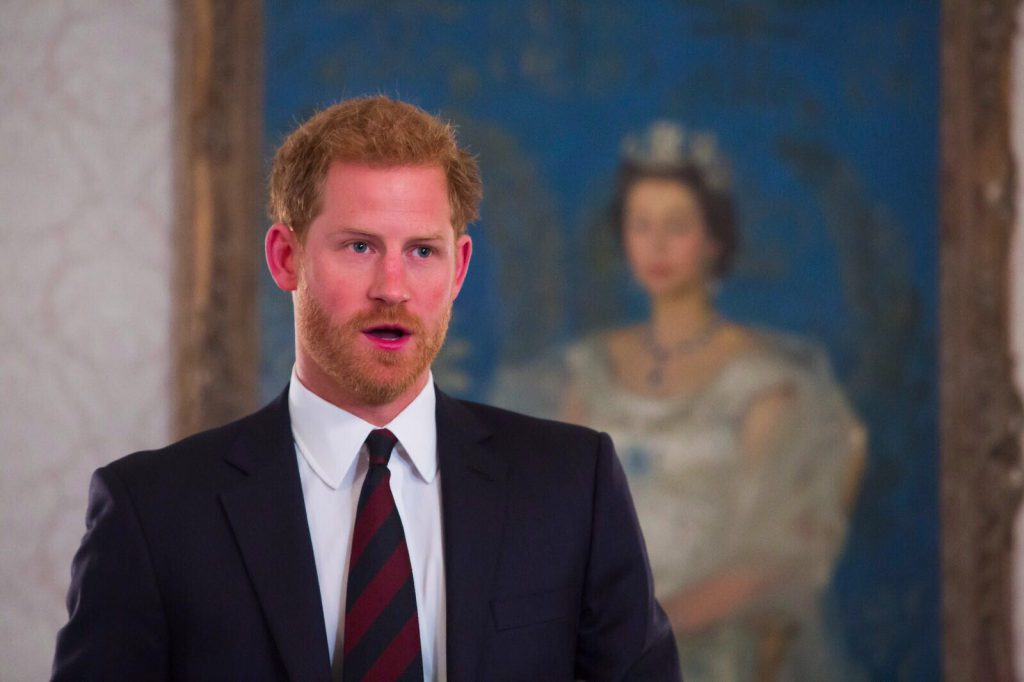
I am delighted that we are now going to make the most of what we have learned, and working with the MOD, fundamentally change the conversation on mental health inside the military.
-Prince Harry
My ten years in the Army taught me a great deal. I learned about the true meaning of service, duty, resilience and dedication.
But in many ways I have learned more about the sacrifices our servicemen and women make for us all since I left the army and continued my work with the Invictus Games.
Having a step back from day-to-day Army life has allowed me to think carefully about how we prepare, support, and care for those who wear the uniform. Each one of our servicemen and women is carefully selected, highly trained and rigorously tested.
A huge amount of time, energy and resources is invested in each person to make them the very best that they can be.
As the overall numbers of active duty personnel have reduced, we are naturally placing a premium on every individual being fighting fit and deployable. Quite simply, these men and women are prized assets which need to be continually invested in. We surely have to think of them as high performance athletes, carrying all their kit, equipment and a rifle.
Crucially, fighting fitness is not just about physical fitness. It is just as much about mental fitness too.
Elite sports people now focus heavily on their mental approach to training and competing. They know that a perfectly fit body cannot win on the court, on the field, in the ring, or on the track if the mind is not focused. We have all seen professional athletes lose races or matches due to unforced errors. It is no different for anyone in high pressure roles.
During my time in the Army, I saw how important physical conditioning was and how we always warmed up before every run or loaded march to reduce the risk of injury. We should have the same approach to conditioning for our mental health too.
The military has faced the challenge of dealing with things like post-traumatic stress, anxiety, and depression. But like many of you in this room, I have come to realise that we can all do more to promote the positive management of our mental health and in doing so, help prevent some of these issues before they develop.
This is what the partnership between the MOD and The Royal Foundation is all about. Placing mental fitness and mental health at the heart of the training and support provided to the entire defence community. The Royal Foundation has built up strong relationships in this space, through our work with the Invictus Games, Contact, the Endeavour Fund, and Heads Together.
I am delighted that we are now going to make the most of what we have learned, and working with the MOD, fundamentally change the conversation on mental health inside the military.
This isn’t just about what to do when one our friends isn’t themselves. It’s about what we do to help each other stay mentally and emotionally sharp – getting that extra 20 or possibly 30% more of performance, that can make all the difference. This isn’t just about the support we must provide for veterans with mental health challenges.
It’s about providing tools and information that will help everyone in the Defence community to get ahead of some of these problems before they start. And it isn’t just about the vital work to challenge stigma around mental health in our Armed Forces. It is about showing everyone the amazing advantages we will all enjoy from training our minds as well as our bodies.
We should be bold about the goals we set ourselves. I see no reason that this partnership cannot be part of a cultural change around mental health that could lead to:
· More service men and women feeling resilient in the face of unforeseen circumstances, both on and off the battlefield;
· Fewer medical discharges as a result of our commitment to preventative mental health care;
· And a more confident, focused, and ultimately more combat ready military.
What we are talking about is creating fundamentally better soldiers and staff to support them. Throughout our training, we develop a mind-set which will not let weakness take over. We are taught to push ourselves through pain barriers to achieve what we thought was impossible. For too long, acknowledging emotion or challenging thoughts was seen as counterproductive to the fundamental characteristics of the Armed Forces.
Today, we are saying that taking mental health seriously is what professional and dedicated service men and women must do to be above the rest and leading from the front.
I am incredibly excited about what we are going to achieve.
Thank you.
